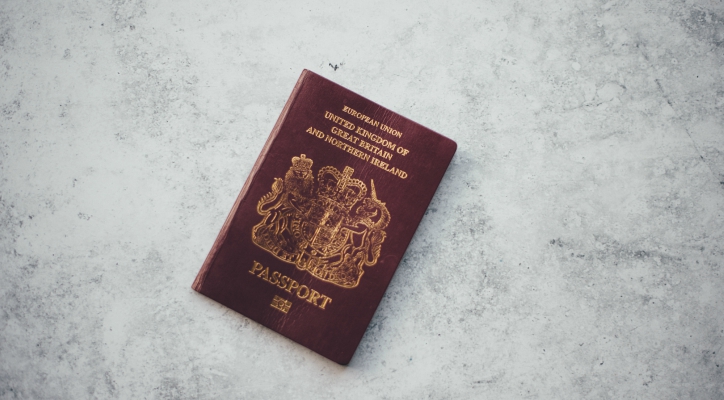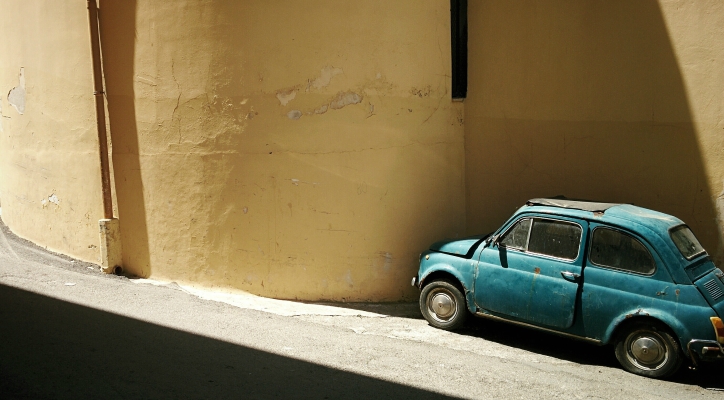Moving to Ireland from Australia
Looking to move to Ireland from Australia? We'll fill you in on the travel and visa requirements, healthcare, cost of living, pros, cons and much more.

Ever considered moving abroad to a new country? Many people consider it, for a wide variety of reasons. You might move to a new country to pursue a job or to go to school. You might even follow a family member or loved one who’s making the move. Whatever your reason, moving to a new country is a huge decision. It’s important to do your research and weigh the pros and cons of your chosen country, because every country has its draws and its drawbacks.
That includes Ireland. The country is known for its love of food and drink, its history, its picturesque countryside and bustling cities. From the outside, Ireland may look like a perfect place to call home. But like anywhere else in the world, there are both pros and cons to living in Ireland. Read on to find out more.
Can you imagine life surrounding by people speaking in Irish accents all day? It’s a dream come true, right? Well, that’s not the only pro that comes with choosing Ireland as your new home. Here are some of the many other reasons Ireland deserves consideration from expats, who are looking for a new home:

Ireland is one of the closest European countries to the US and Canada. It’s also a fantastic launching point for exploring the rest of Europe — the UK is less than an hour away, Barcelona is only a two hour flight and Rome is only three hours. For world travelers, there’s hardly a better home base anywhere than Ireland.

Ireland has some pretty strict gun laws — it’s illegal to own a firearm unless you live on a farm, and even then, the gun you buy has to be “farm appropriate.” This means that rates of gun violence are nearly nonexistent and rates of violent crime overall are low in Ireland. It’s overall a pretty safe place to call home, compared to many other countries.

All permanent residents in Ireland are entitled to healthcare. If your earnings are below a certain threshold, you even qualify for a medical card which entitles you to get almost all of your medical services for free. If you don’t qualify for a medical card, you’ll have to pay out of pocket for some services like doctor’s visits, but they’re still subsidized by the government, which keeps costs relatively low. Ireland even offers the Drugs Payment Scheme, which caps the amount you have to spend on prescription medications, the Long-Term Illness Scheme, which will cover your costs if you have a chronic or long-term condition, and the Maternity and Infant Care Scheme, which heavily subsidizes the medical costs of having kids.

Residents of Ireland can be dual citizens with another nation, as long as that nation also recognizes the ability to hold a dual citizenship. That means becoming an Irish citizen doesn’t necessarily mean you have to give up your rights in your home country.

In Ireland, even non-residents can open bank accounts. All you’ll need to open an account is a valid form of photo ID (like your passport) and proof of your address, even if your address is in a different country. Some banks are a little more stringent with non-residents and require two forms of proof of address, or a financial history from your home country. Unfortunately, bank accounts in Ireland can rarely be opened online, so you’ll have to wait until you’re actually in the country to take care of this chore.

In Ireland’s larger cities, like Dublin, public transportation is generally pretty fast and reliable, though there are delays sometimes in the larger systems. Outside the cities, there are buses and trains that will take you just about anywhere, and for the places they don’t go, rental cars are cheap.

Ireland is known around the world for its pub scenes. Pubs are more to the Irish than places to have a meal and a Guinness — they’re like community centers where people make and keep friends, play games, hear music and more. The social scene in Ireland is lively, and definitely revolves around time spent in pubs, which is great news for those who like to eat and drink.
Unfortunately, no place is perfect, and that includes Ireland. Just like in any other country, there are some cons to living in Ireland, such as:

Ireland is well known for being dreary and rainy almost year-round. Even during summer, it’s commonly overcast and rain can come at literally any time. The weather is also unpredictable, prompting the Irish saying, “You can see every season in a day.” Ireland’s position in the Atlantic doesn’t offer it any protection from the elements, and it’s entirely possible to see sunny skies and a downpour of rain within the same day (or even the same afternoon!). It rarely snows in Ireland, but that doesn’t mean much of the year isn’t cold. If you’re someone who needs steady sunshine to be happy, Ireland may not be for you.

The cost of living in city centers of Ireland’s bigger metropolitan areas can get pretty steep. Rents are much lower as you get further from the city centers, but those areas have less access to public transportation.

The Irish love their pubs, and to many that’s a draw for the country. But the social scene revolves pretty heavily around alcohol -- if you don’t drink, you may find that the culture isn’t for you.

While Irish healthcare is accessible and, for the most part, effective, for some medical procedures there are long wait times. Healthcare isn’t perfect in any country, and Ireland definitely proves that.

Irish fuel taxes are very high, which drives up the cost of petrol. At the end of 2017, Ireland was the fourth most expensive place in the world to fuel up a car, with taxes accounting for 60% of the cost of a tank of petrol. Petrol is more than twice as expensive in Ireland as it is in the US. And drivers don’t save by going across the border into the UK to fill up — fuel is expensive there, too.

In the last few years, it’s been hard for even Irish nationals to qualify for a mortgage loan. It’s generally even harder for expats to qualify, and they may be required to jump through extra hoops to prove they can afford the loan. Expats are often seen as higher risk borrowers, so their interest rates will generally be less favorable than those who were born and raised in Ireland. If you’re planning to buy property instead of renting, you may have a lot of work ahead of you to secure a home loan.

Whether you’re juggling your finances as you spend time in two different countries, or you’re taking the plunge and actually moving to Ireland, you have some choices ahead of you. One of the most important will be what to do with your money. If you frequently need to send money across borders, using a bank or a traditional money transfer service could mean paying for a markup of 4-5% on the exchange rate -- basically a hidden fee that helps the bank profit off of your need to move your money. There has to be a better option, right? Consider Wise. Wise allows you to send money internationally at the real mid-market rate — that’s the sameexchange rate you see when you Google it. You’ll still have to pay a transfer fee, but it’s small, fair and spelled out upfront. There are no markups and no hidden fees.
And for frequent travelers, Wise also offers borderless multi-currency accounts, which give users the ability to send, receive, hold and manage money in multiple global currencies all at the same time (including euros). Beginning in 2018, borderless account holders will also have access to consumer debit cards, making it even easier for them to access their money while on the go between countries. Try Wise today to see how easy it can be to manage your money while abroad, moving or travelling.
One look at the Cliffs of Moher is enough to make anyone dream of living on Ireland’s rugged coastline, taking in that gorgeous scenery day after day. But before you move to a new country, it’s important to do your research and figure out whether that country will be a good fit for you. Ireland has its downsides, but it has many good qualities as well. Is Ireland the perfect home for you? Wherever you end up, good luck with your travels!
*Please see terms of use and product availability for your region or visit Wise fees and pricing for the most up to date pricing and fee information.
This publication is provided for general information purposes and does not constitute legal, tax or other professional advice from Wise Payments Limited or its subsidiaries and its affiliates, and it is not intended as a substitute for obtaining advice from a financial advisor or any other professional.
We make no representations, warranties or guarantees, whether expressed or implied, that the content in the publication is accurate, complete or up to date.

Looking to move to Ireland from Australia? We'll fill you in on the travel and visa requirements, healthcare, cost of living, pros, cons and much more.

Child maintenance in Ireland is complicated — read on to learn what you need to know.

Having a baby is a priceless experience, but if you’re a foreigner in a different country, it can be daunting to navigate new healthcare systems and impending...

Roaming around Ireland is the fantasy of many, driving through the beautiful green countryside and stopping for a pint in any of the country’s quaint small...

If you’re an expat living in the Republic of Ireland, you might be considering taking up an Irish citizenship. There are some clear benefits to this. Becoming...

The legal requirements for getting married in Ireland are pretty straightforward. However, as with any wedding, you can’t get around putting in some effort,...